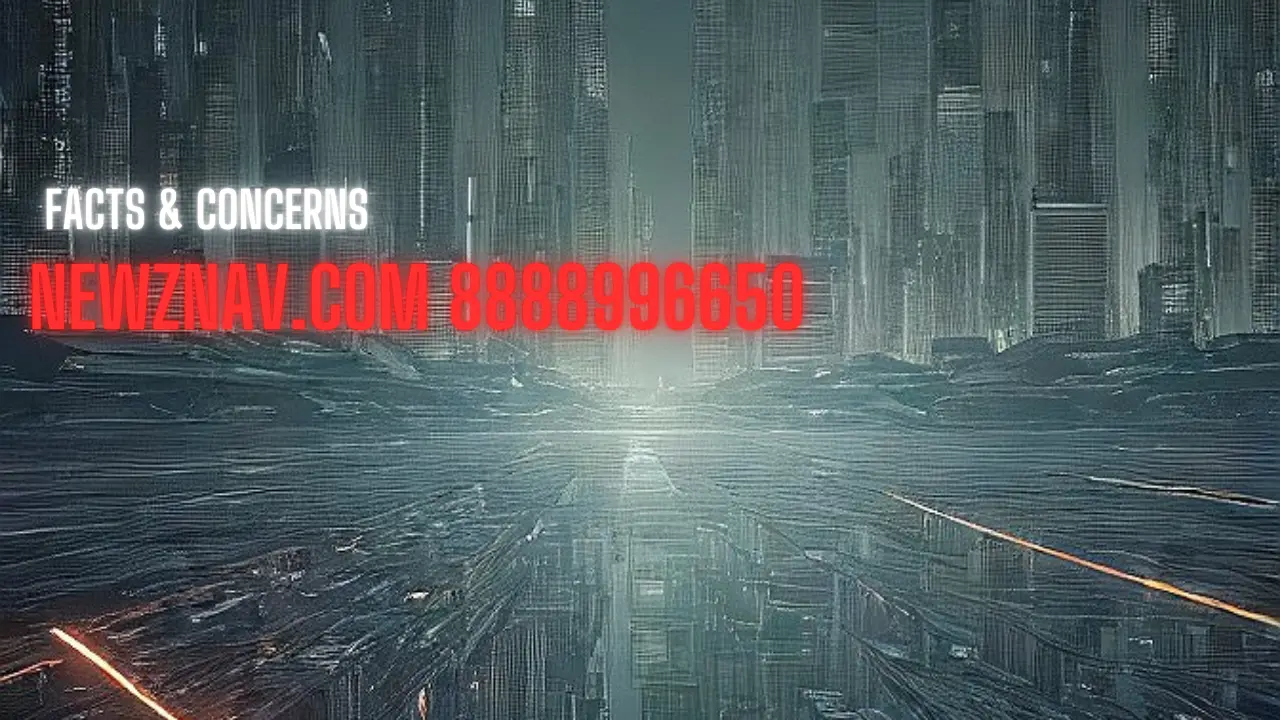In this article we will talk the Vaniya Agrawal Microsoft. In early April 2025, the tech industry witnessed a moment that rippled far beyond the walls of Microsoft’s Redmond headquarters. Vaniya Agrawal, an Indian-American software engineer, stood up during the company’s 50th anniversary celebration and confronted some of the most powerful figures in tech—Bill Gates, Steve Ballmer, and Satya Nadella.
Her words were sharp, her stance unapologetic: “Fifty thousand Palestinians in Gaza have been murdered with Microsoft technology. How dare you. Shame on all of you for celebrating on their blood.” Shortly after, she resigned, leaving behind a company-wide email that sparked debates about ethics, technology, and corporate responsibility. The phrase Vaniya Agrawal Microsoft has since become a lightning rod for discussions about the intersection of tech and morality.
Who is Vaniya Agrawal, and why did her actions resonate so deeply? This article dives into her story, her career, the controversy surrounding Microsoft’s alleged ties to Israel’s military, and the broader implications for the tech industry. Whether you’re a tech enthusiast, an ethics advocate, or simply curious, here’s everything you need to know about Vaniya Agrawal Microsoft—written with insight, clarity, and a human touch.
Who Is Vaniya Agrawal? A Rising Star With a Conscience
Vaniya Agrawal Microsoft isn’t just a name tied to a viral moment; she’s a skilled software engineer with a compelling journey. Based in Seattle, Washington, Agrawal built a solid career in tech before her dramatic exit from Microsoft. She graduated summa cum laude with a Bachelor of Science in Software Engineering from Arizona State University (2016–2019), earning the prestigious Grace Hopper Scholarship in 2017—a recognition awarded to only 35 students that year for excellence in computing.
Before joining Microsoft, Agrawal spent over three years at Amazon, starting as a Software Development Engineer in 2019 and later earning a promotion. Her pre-tech career was eclectic—she worked as a tea consultant, a medical assistant, and even a pharmacy technician, showcasing a curiosity and adaptability that later defined her professional path.
In September 2023, she joined Microsoft’s Artificial Intelligence division as a Software Engineer II, a role that placed her at the cutting edge of one of tech’s most transformative fields.
But Agrawal’s story isn’t just about credentials. It’s about conviction. Her decision to publicly challenge Microsoft’s leadership and resign over ethical concerns has made her a symbol of resistance in an industry often criticized for prioritizing profit over principles.
The Incident: What Happened at Microsoft’s 50th Anniversary?

On March 4, 2025, Microsoft celebrated its 50th anniversary at its Redmond headquarters. The event was meant to be a milestone, a showcase of innovation with luminaries like Bill Gates, Steve Ballmer, and Satya Nadella sharing the stage. Instead, it became a flashpoint for controversy, thanks to Vaniya Agrawal Microsoft.
As the panel discussed Microsoft’s legacy and future, Agrawal stood up and unleashed a blistering critique. She accused the company of complicity in the deaths of 50,000 Palestinians in Gaza, linking Microsoft’s technology—specifically its Azure cloud and AI services—to Israel’s military operations.
Her protest wasn’t a solo act; another employee, Ibtihal Aboussad, had earlier disrupted a speech by Microsoft AI CEO Mustafa Suleyman with similar accusations. Both women were escorted out, but their voices lingered.
Agrawal followed up with a company-wide email announcing her resignation, effective April 11, 2025. In it, she wrote, “I cannot, in good conscience, be part of a company that participates in this violent injustice.”
She cited a reported $133 million contract between Microsoft and Israel’s Ministry of Defense, alleging that the company’s tech fueled surveillance, apartheid, and genocide in Gaza. Her words were raw, emotional, and unfiltered—qualities that made them impossible to ignore.
Why Did Vaniya Agrawal Resign? Unpacking the Ethical Dilemma
At the heart of the Vaniya Agrawal Microsoft saga is a moral question: What responsibility do tech companies—and their employees—bear for how their products are used? Agrawal’s protest was rooted in her belief that Microsoft’s technology was enabling harm, a claim tied to reports from reputable sources like the Associated Press (AP). According to an AP investigation, Microsoft’s AI and cloud services have been deployed in Israeli military programs, including target identification in Gaza and Lebanon.
Here’s what drove her decision, based on her own words and the broader context:
Key Factors Behind Vaniya Agrawal Microsoft Stand
- Microsoft’s Alleged Military Ties: Agrawal pointed to a $133 million contract with Israel’s Ministry of Defense, claiming it supported mass surveillance and bombings in Gaza. She referenced leaked documents showing Microsoft AI powering sensitive Israeli military projects.
- Personal Conviction: In her resignation email, she described witnessing “unspeakable suffering” in Gaza over her 1.5 years at Microsoft, a period that coincided with escalating violence in the region.
- Corporate Complicity: She argued that all Microsoft employees, regardless of their role, were complicit in the company’s actions. “Our labor powers this genocide,” she wrote, urging colleagues to question who their technology empowers.
Her protest wasn’t just a outburst—it was a calculated act tied to the “No Azure for Apartheid” movement, a campaign by Microsoft employees demanding the company end its ties with Israel. Agrawal’s resignation amplified this call, turning a corporate event into a global conversation.
Microsoft’s Role in the Controversy: Fact vs. Allegation
To understand the Vaniya Agrawal Microsoft story, we need to examine Microsoft’s alleged involvement with Israel’s military. While Agrawal’s claims are impassioned, they’re grounded in reports that deserve scrutiny.
What We Know
- The Contract: An AP report highlighted a $133 million deal between Microsoft and Israel’s Ministry of Defense, focusing on Azure cloud and AI services. These tools reportedly enhance Israel’s military capabilities, including surveillance and targeting systems.
- Gaza Conflict: Since October 2023, over 50,000 Palestinians have been killed in Gaza, according to Gazan health authorities, amid Israel’s response to a Hamas-led attack that killed 1,200 Israelis. Microsoft’s tech has been linked to this conflict, though the extent remains debated.
- Company Response: Microsoft has not directly addressed Agrawal’s accusations. A spokesperson told CNBC on April 7, 2025, that the company adheres to high business standards and provides avenues for employee feedback—albeit in ways that “do not cause a business disruption.”
The Gray Area
Microsoft isn’t unique in its military ties—tech giants like Amazon and Google have similar contracts. But the Vaniya Agrawal Microsoft incident highlights a growing tension: as AI becomes more powerful, its ethical implications grow thornier. Was Agrawal’s protest a fair critique, or an oversimplification of a complex issue? The answer depends on where you draw the line between corporate responsibility and geopolitical reality.
Table: Vaniya Agrawal Microsoft Career Timeline
| Year | Milestone | Details |
|---|---|---|
| 2016–2019 | Arizona State University | Earned B.S. in Software Engineering, summa cum laude; Grace Hopper Scholar |
| 2018 | Amazon Internship | Software Development Engineer intern |
| 2019–2022 | Amazon Full-Time | Software Development Engineer, later promoted |
| September 2023 | Joined Microsoft | Software Engineer II in AI division |
| March 4, 2025 | Protest at Microsoft’s 50th Anniversary | Confronted Gates, Ballmer, and Nadella over Israel ties |
| April 11, 2025 | Resignation Effective | Left Microsoft after 1.5 years, citing ethical concerns |
This timeline shows Agrawal’s rapid rise—and abrupt exit—underscoring how her career intersected with her values.
The Fallout: Reactions and Implications
The Vaniya Agrawal Microsoft moment didn’t fade quietly. It sparked a firestorm of reactions, both within Microsoft and beyond.
Inside Microsoft
- Support: Hundreds of employees reportedly reacted positively to Agrawal’s email before Microsoft blocked replies, suggesting a pocket of internal dissent.
- Termination: Despite her resignation, Microsoft terminated Agrawal’s employment on April 7, 2025, alongside Ibtihal Aboussad, citing “wilful misconduct.” This move raised questions about retaliation, despite Microsoft’s human rights policy prohibiting it.
Outside the Company
- Social Media: On X, sentiments ranged from praise (“She’s a hero for speaking out”) to criticism (“Disrupting an event isn’t the way to make a point”). The hashtag #VaniyaAgrawal trended briefly.
- Industry Ripple: Her actions echoed past protests—like Microsoft employees opposing a $479 million U.S. Army HoloLens contract in 2019—signaling a growing ethical awakening in tech.
Broader Impact
Agrawal’s stand has fueled debates about:
- Tech Ethics: Should companies like Microsoft divest from military contracts, or is neutrality impossible in a globalized world?
- Employee Power: Her protest shows how individual voices can challenge corporate giants, inspiring others to speak up.
Practical Advice: Navigating Ethics in Tech
The Vaniya Agrawal Microsoft story isn’t just a headline—it’s a lesson. If you’re in tech or considering a career there, here’s how to approach ethical dilemmas like hers:
Actionable Takeaways
- Research Your Employer: Before joining a company, dig into its contracts and values. Websites like LinkedIn or Glassdoor can reveal red flags.
- Speak Up Strategically: If you see something wrong, use internal channels first—escalate publicly only if necessary, as Agrawal did.
- Know Your Limits: Decide what you’re willing to tolerate. Agrawal’s exit shows the power of walking away when values clash.
- Join a Movement: Groups like “No Azure for Apartheid” amplify individual voices—consider aligning with like-minded peers.
Questions to Ask Yourself
- Does my work align with my principles?
- Am I comfortable with how my code or product might be used?
- What’s my plan if I encounter an ethical conflict?
Agrawal’s choice wasn’t easy, but it was hers. You can make yours too.
What’s Next for Vaniya Agrawal Microsoft?
As of April 7, 2025, Vaniya Agrawal Microsoft future is unclear. Her LinkedIn and social media presence have gone quiet, suggesting she’s stepping back from the spotlight—or perhaps planning her next move. Some speculate she’ll pivot to advocacy, leveraging her platform to push for tech reform. Others wonder if she’ll return to engineering in a less controversial space.
For Microsoft, the Vaniya Agrawal Microsoft incident is a PR challenge and a test of its ethical stance. Will it address employee concerns, or double down on its military ties? The company’s silence so far leaves room for speculation, but pressure from within and outside may force a reckoning.
Conclusion: A Wake-Up Call for Tech
Vaniya Agrawal Microsoft confrontation with Microsoft wasn’t just a moment of defiance—it was a mirror held up to an industry often too focused on innovation to question its impact. The Vaniya Agrawal Microsoft story challenges us to think: What’s the cost of progress, and who pays it? Her resignation wasn’t a victory or a defeat—it was a spark, igniting conversations about accountability in tech.


